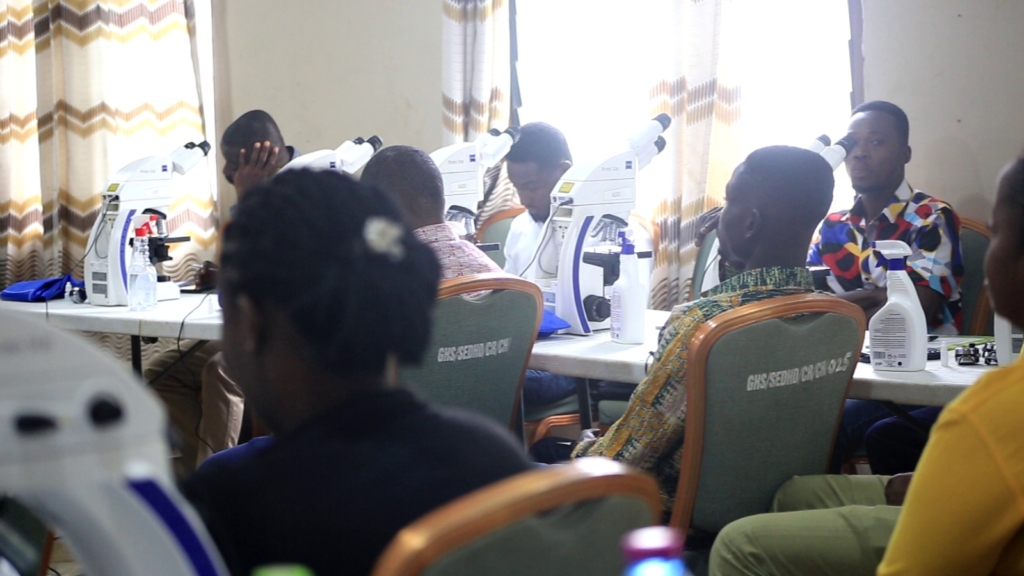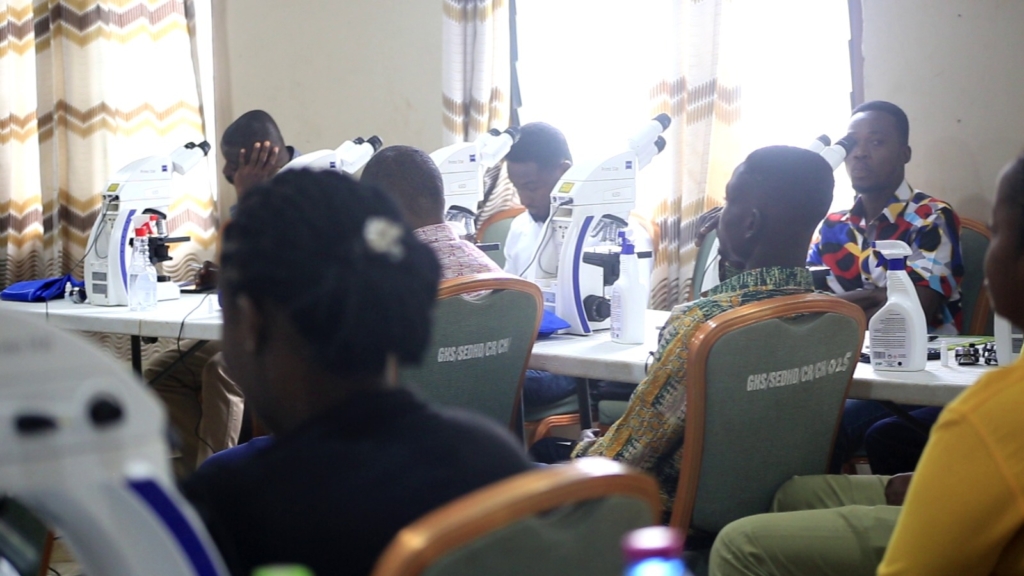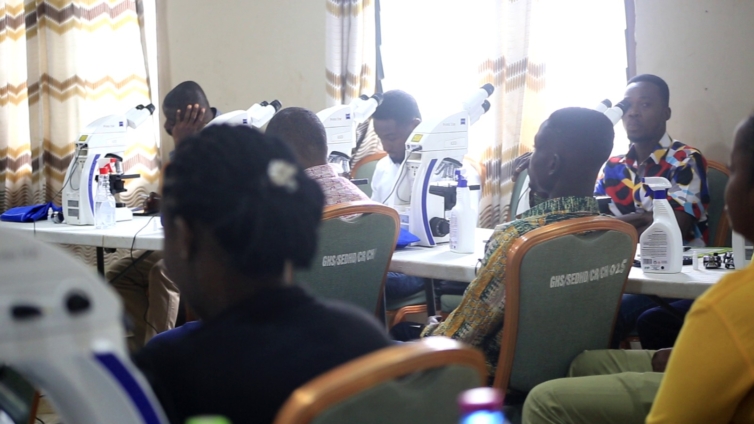Diagnostic on-site training to boost malaria fight in 7 Municipal and District Assemblies (MDAs) in the Ashanti region has taken place in the Sekyere East District to update skills of beneficiaries.
The on-site diagnostic training, known as Malaria Diagnostic Refresher Training (MDRT), equipped 39 medical laboratory professionals - including scientists, technicians, and assistants - from Sekyere Central, Sekyere East, Sekyere South, Sekyere Kumawu, Afram Plains, Asante Mampong, and Ejura Sekyeredumase.
The training sought to upgrade their expertise in malaria microscopy, enabling them to deliver precise diagnoses and effective treatments - focusing on accurate counting of malaria parasites and identifying all species and stages of malaria parasites.

The training, a joint effort between the Ghana Health Service (GHS) and the National Malaria Control Program (NMCP), focused on equipping technicians with advanced skills in detecting malaria parasites, identifying malaria species, and mastering Rapid Diagnostic Test (RDT) procedures to enhance their malaria diagnostic capabilities.
Sekyere East in focus
In the Sekyere East District, malaria cases showed a significant decline. In 2022, there were 20,364 reported cases, with 5,140 involving children under 5 and 774 involving pregnant women. By 2023, cases had decreased by 24.6%, and by July 2024, they had dropped by a further 67.2% compared to 2022, resulting in an overall reduction of 67.3% in OPD malaria cases.
Malaria cases in children reduced by 22.3% in 2023 and further to 62.1% in 2024. This meant that, the overall percentage reduction from 2022 to 2024 was 70.6%. Meanwhile, malaria cases in pregnancy reduced by only 6.2% and 25.5% in 2024 while the overall percentage was 30.1%
The data suggested that while there has been a significant decline in OPD cases overall, particularly in children, the reduction in cases in pregnancy has been slower. This indicated that pregnant women require more targeted interventions or continued support to achieve similar reductions in cases.
This is why the District Health Director for Sekyere East, Dr. Justice Ofori-Amoah, said the the training is crucial for equipping technicians with advanced skills and knowledge in malaria diagnosis, a key step towards ultimately eliminating the disease.
“The purpose is to upgrade their skills and knowledge in malaria case management to have effective cases management for all reported malaria at the facilities,” he said.
Dr. Ofori-Amoah emphasized that the onsite training will empower his team to enhance case detection and management, leading to improved malaria control and treatment outcomes.
A certified malaria microscopist with the World Health Organization (WHO), David Ntiamoah Ofosu, indicated that diagnostic testing is vital for detecting and quantifying malaria parasites, ultimately leading to accurate diagnoses and effective treatment.
Regional Malaria Diagnostic Refresher Training Breakdown
Over 30 lab scientists, technicians and assistants from the 16 regions across the country participated in the training to enhance their malaria diagnosis skills since the beginning of 2024.
David stated that the objective is to ensure malaria treatment is informed by the "test, treat, and track" approach, where accurate diagnostic tests guide treatment decisions and cases are properly monitored to prevent misdiagnosis and promote effective disease management.

David drew attention to the rising incidence of two malaria species in Ghana, noting that, “We have known species of malaria that are coming up strongly in Ghana – that’s the ovale and malariae.”
He explained that the training's primary objective is to enhance participants' ability to correctly identify these species, thereby improving malaria diagnosis and treatment.
Research published in 2022 identified Plasmodium malariae and Plasmodium ovale as key causes of clinical malaria in Ghana, with school-aged children between 5 and 15 years old disproportionately affected by Plasmodium falciparum and Plasmodium ovale infections.
Latest Stories
-
LOLA Hope Foundation Ghana launches to empower vulnerable youth
59 minutes -
Egypt’s Al-Ahly part ways with coach Koller
3 hours -
Rafatu Inusah elected onto GOC Board
5 hours -
SAMSON’S TAKE: AG okays demo, how refreshing?
6 hours -
Trump questions Putin’s desire for peace after meeting Zelensky at the Vatican
7 hours -
Legend of The Week – George Darko
7 hours -
Kounde strike wins Copa del Rey final for Barcelona
12 hours -
Is NPP crying more than the bereaved in the Chief Justice saga?
13 hours -
“Elements within NPP worked against me for supporting ‘Ken must go'” – Cynthia Morrison
14 hours -
IMF Boss commends finance minister for strong commitment to economic reform
14 hours -
Cynthia Morrison advises Ghanaian women to diversify their skills to build wealth
14 hours -
UK deports 43 immigration offenders to Ghana and Nigeria
15 hours -
Piwak Natural Health urges Akosombo victims to rebuild with new donation
15 hours -
Ghana’s Para athlete Gilbert Ampiah wins bronze at Marrakech Grand Prix 2025
15 hours -
6 dead in Adansi Dompoase crash involving VIP bus and sprinter
16 hours

